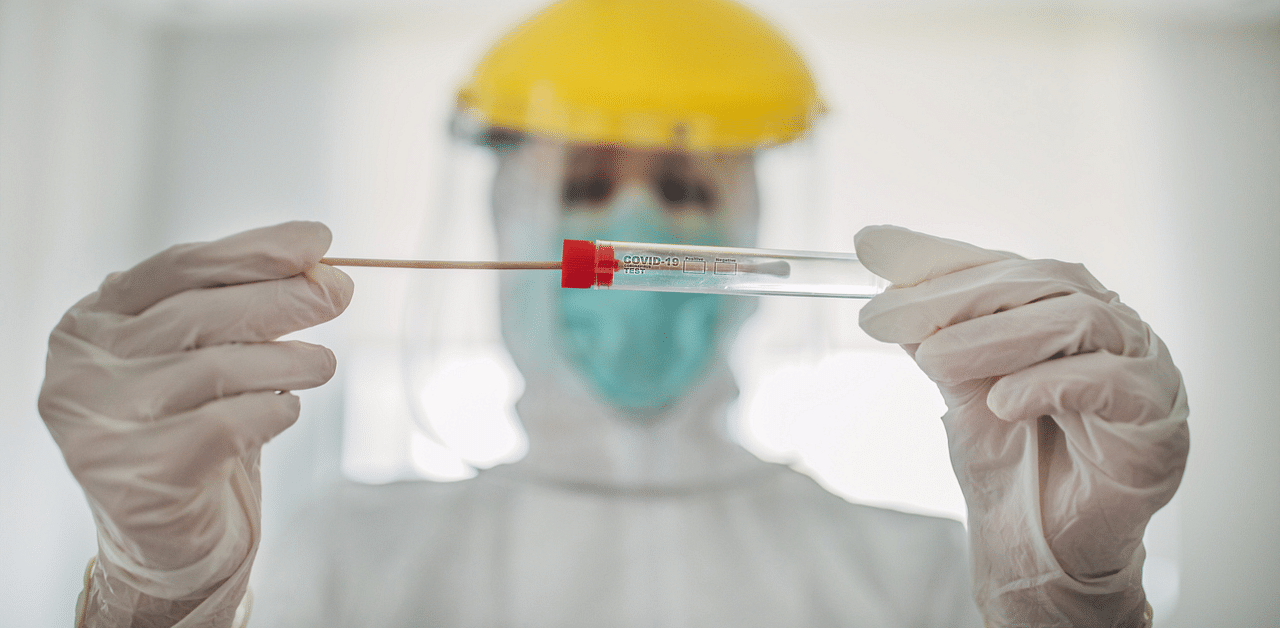
Karnataka on Thursday officially recognised a new category of patients with "Covid-19 Like Syndrome", who test negative for Covid-19 in RT-PCR but are later found to have serious Covid-like illness through high-resolution CT (HRCT) scan.
In a new circular to diagnose 'Covid-19 probable' cases, the government suggested a four-pronged approach to identify such patients: Clinical, radiological, blood investigations and nasal and throat swab.
The state will employ Covid-19 Reporting And Data (CORAD), a new method to assess the risk factor of such patients. CORAD score is a CT scan-based system that is used to assess the suspicion of pulmonary involvement in Covid-19. A score ranging from 3 to 6 means the level of suspicion is 'equivocal' to 'very high', meaning 'features are compatible with Covid-19' or are 'typical of Covid-19'.
Based on the official assessment, DH on October 15 highlighted that up to 5% of total Covid cases may test negative in RT-PCR but are found to have serious infections through HRCT and later test positive for the disease.
Noting that identifying such false-negative patients was crucial to prevent mortality and infection, the government has stressed the need to conduct an HRCT scan.
Now, if a patient has clinical features suggestive of Covid-19, a CORAD of 5 and blood investigations suggest markers above certain values, and an RT-PCR negative report, then he/she will be considered a 'Covid-19 Probable Case'.
"With the increase in the spread of Covid-19 and increase in the number of tests every day, the percentage of False Negative Reports are increasing and it's expected to increase further in future," the circular stated.
It goes on to say, "And many times, in spite of clinical-radiological features suggestive of Covid-19 disease, the RTPCR test, which is considered as Gold Standard Test, maybe negative." With sensitivity and specificity of RT-PCR tests for nasal and throat swab ranging between 60-70%, we may miss many positive cases, i.e., get false negative reports.
Rapid Antigen Detection test, which is recommended by the ICMR has shown sensitivity (ability to detect true positives) ranging from 50.6% to 84% and specificity (ability to detect true negatives) of 99.3% to 100%, after two independent evaluations. Additionally, several retrospective studies have shown that CT Thorax (chest) has greater sensitivity (86%-98%) and lower false-negative rate than RT-PCR.
Hence, a proxy syndrome, called "Covid-19 Like Syndrome" (or) Covid-19 Probable case, has to be used to identify such cases with a correlation of clinical features, CT Thorax findings and laboratory investigations, to initiate treatment similar in lines to Covid-19 confirmed cases as early as possible.
All government and private health establishments treating Covid-19 should strictly adhere to the above approach, in the larger interest of reducing mortality due to Covid-19, the circular said.
